Why We Never Stop Asking in Helicopter Stories
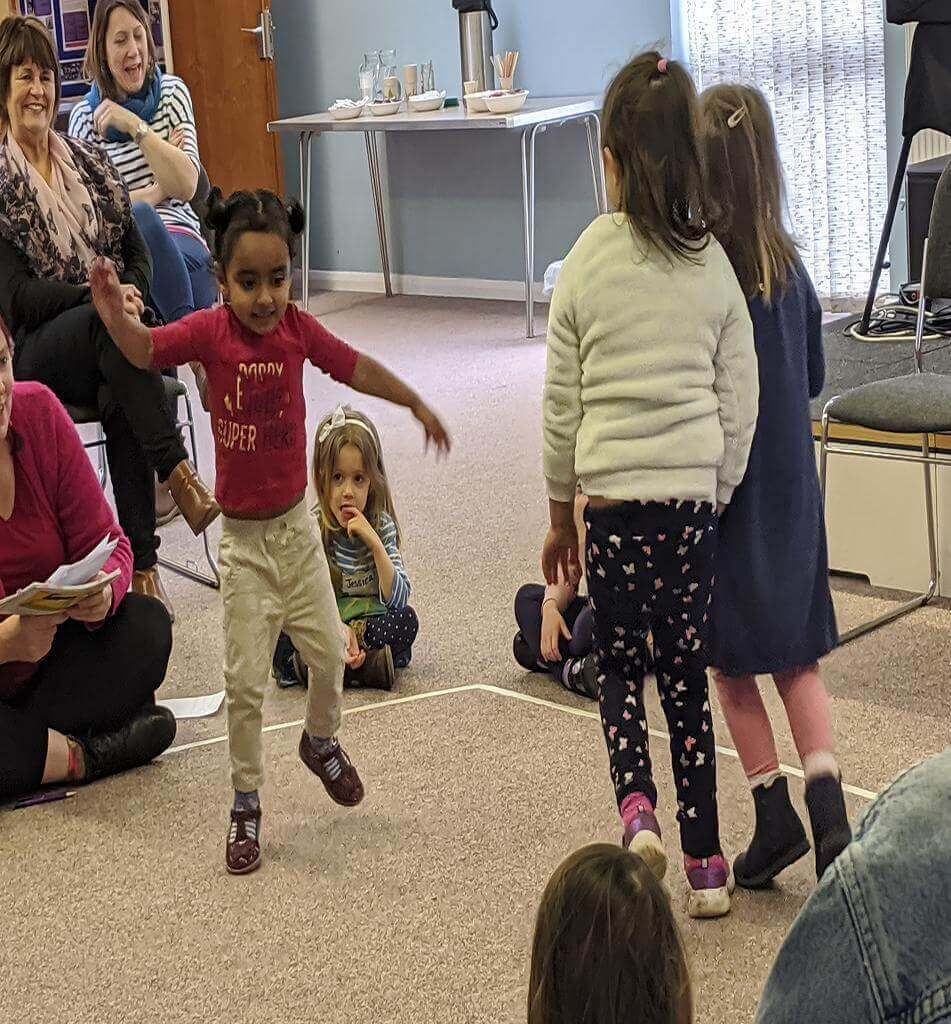
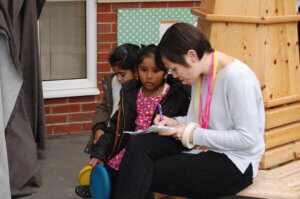
‘Tabassum, would you like to tell a story today?’ That familiar phrase that has, for the past 2 years, ended in a very swift ‘no, thank you.’
I have been working with Tabassum for this long, doing Helicopter Stories, The Poetry Basket and The Story Basket. Until this day, she has never told a Helicopter story. But this time was different. This was the day I am glad I never stopped asking.
‘Tabassum, would you like to tell a story today?’ I asked as I looked down the register of whose turn it was to tell a story. ‘Yes’, came the smallest of replies. I tried to play it cool, not to make a fuss, not to draw attention to this momentous moment (knowing that she would hate that). So, I just said ‘Great’ and moved onto the next person in the register.
Tabassum knew exactly what her story was – it came out straight away, as though she has been thinking about it for a while. One of the things I noticed is that she knew everything about dictating a story; how much I could hold onto before I needed to write it down and to wait while I finished writing, before she said the next part. She knew of the story conventions of her class. She knew she didn’t have to be in it. All of these small unsaid ‘rules’ of Helicopter Stories she knew, and yet she’d never told a story before.
What does this tell us? Well, it tells me that Tabassum had been getting all of the benefits of Helicopter Stories without ever telling a story herself; it tells me Helicopter Stories is an approach where all children benefit regardless of their level of participation.

In her book, The Growth of a Storyteller (2023), Trisha Lee talks about the 3 roles in Helicopter Stories: Storyteller, Story Actor and Audience member. Each role has an equally important part to play. Each role offers many opportunities for learning. Sometimes as practitioners, we so desperately want all children to participate in everything, we forget that not everything will suit all children. Choice suits all children. Choosing to be a lion, choosing to tell a story, choosing to watch the baddie be defeated by the goodie – all choices that help the children who participate in Helicopter Stories to feel empowered and confident in their chosen role.
When Tabassum had finished telling her story, I asked her ‘and who do you want to be in the story, which part do you want to be?’ She immediately shook her head, ‘I don’t want to be in it’, she said. ‘That’s fine’, I said, ‘we’ll get your friends to act it out, shall we?’ She nodded, smiling, and off she went.
This is the story Tabassum told:
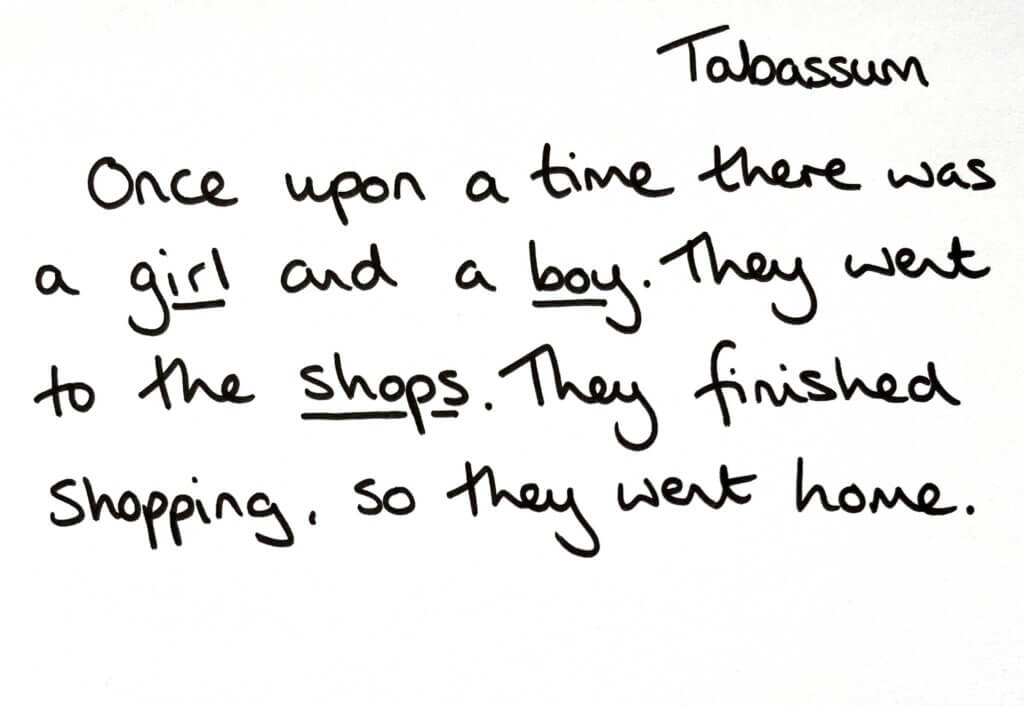
“Once upon a time there was a girl and a boy. They went to the shops. They finished shopping, so they went home.”
Once we had gathered around the stage at the end of the morning, I announced ‘Next is Tabassum’s story.’ Quickly she buried her head in her knees, as I continued ‘Now, Tabassum doesn’t want to be in her story so we’re going to act it out for her. Once upon a time there was a girl.’ I continued in the usual way to ask people to come up onto the stage to play the parts in the story and as soon as the attention was on the stage and away from Tabassum, she raised her eyes to watch her story being acted out.
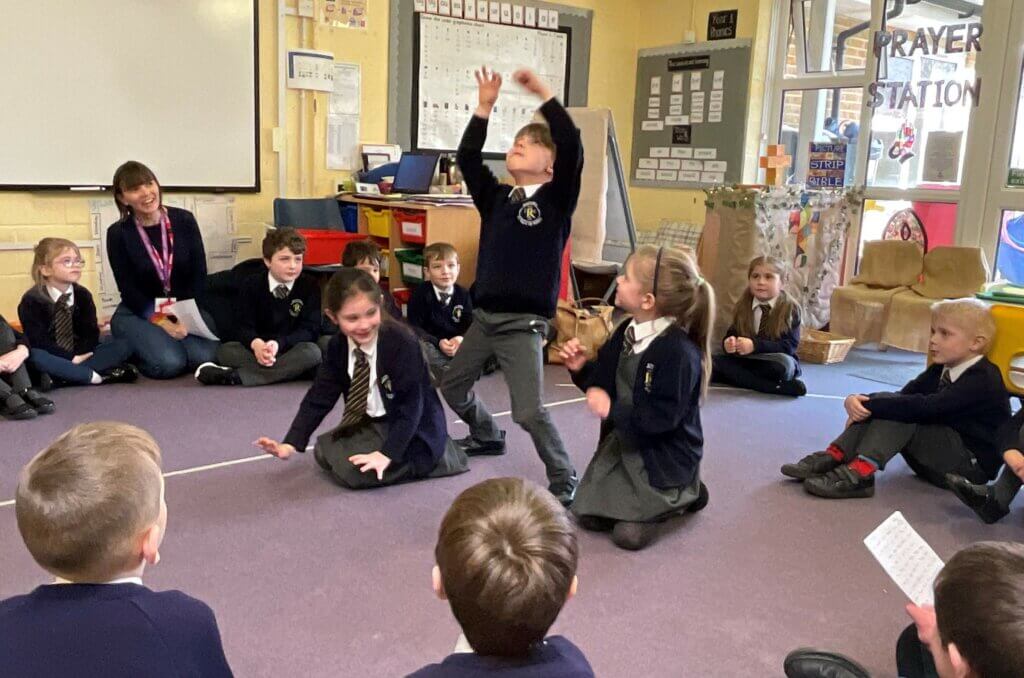
Being a short story, it was finished very quickly and we all clapped thank you. Tabassum deliberately caught my eye over the top of her knees and grinned. She had told her first story, would this lead to more? I can’t wait to find out.
What other practitioners say…
Kate Sibley, Iver Village Infant School and Nursery
After 5 months of Helicopter Stories, a child with high SEN needs and limited vocabulary wouldn’t tell a story or participate in the acting out.
One day out of the blue, he ran over while I was scribing, pointed at the paper and shouted “cake, banana, apple” and ran off. When we came to the acting out, he didn’t come over at first. But as I said his story (really loudly), he came running onto the stage and shouted his story again, laughed and then ran off. Everyone clapped!
Julie Wakefield, Early Years practitioner
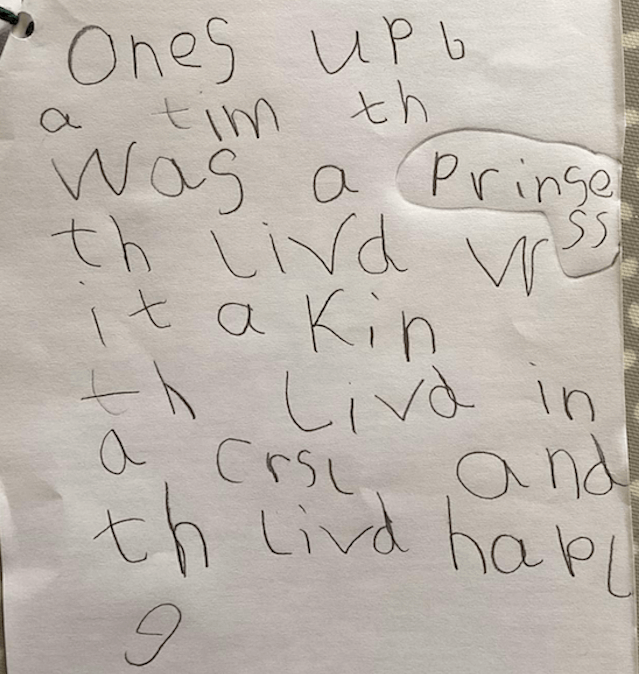
This story is such a lovely example of what happens when we ‘trust the process’. I have a little girl who is 4; she is very able, but quiet and shy. She was reluctant to let me scribe her story for a long time, then one day decided that she was ready, and her story was fantastic. She didn’t want to act out her story, but as the author we shared her story together with the class.
Today she sat near me while I scribed other children’s stories, commenting that it was her turn next week. Then she took one of the pages and said she was going to write her own (independent) story today. “I knew I could read but I didn’t know I could write”, was what she said. Thank you, Helicopter Stories!
“Once upon a time there was a princess that lived with a king. They lived in a castle and they lived happily ever after”



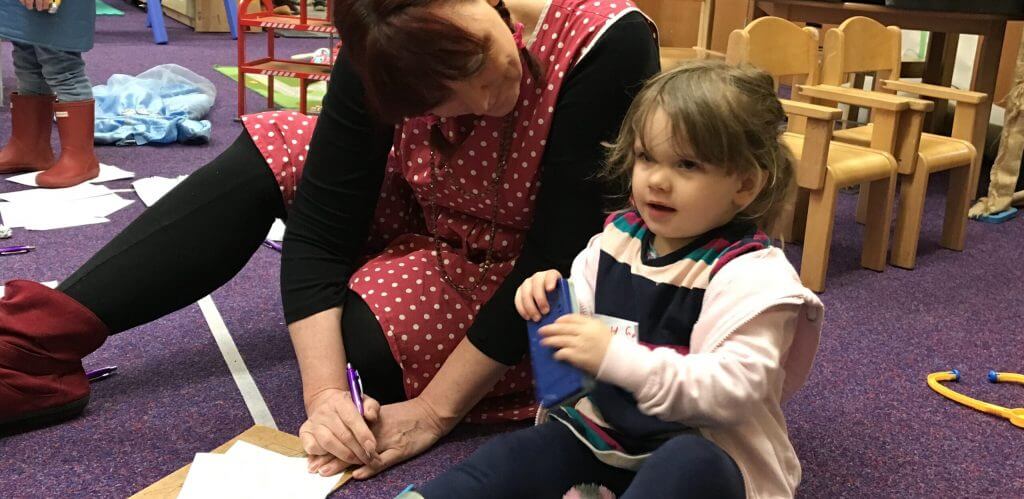
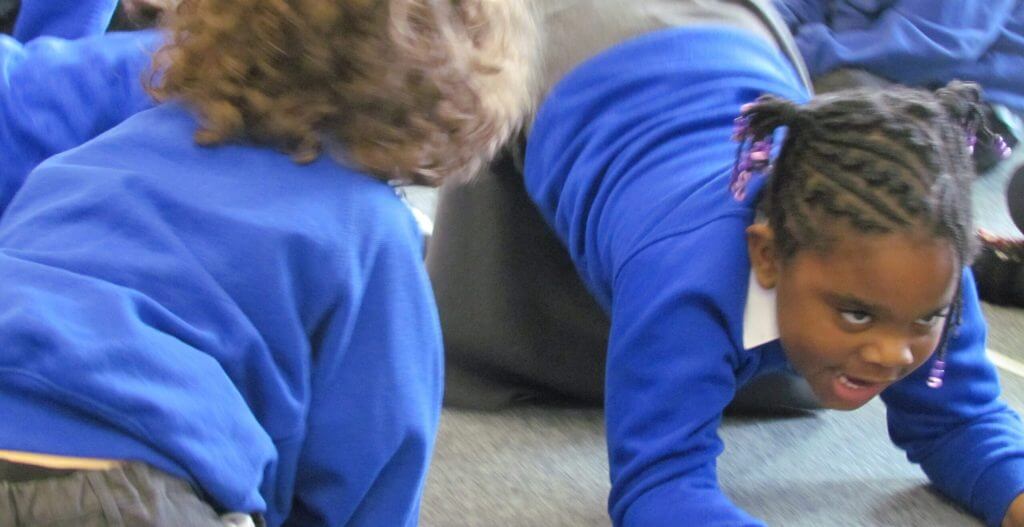
Responses